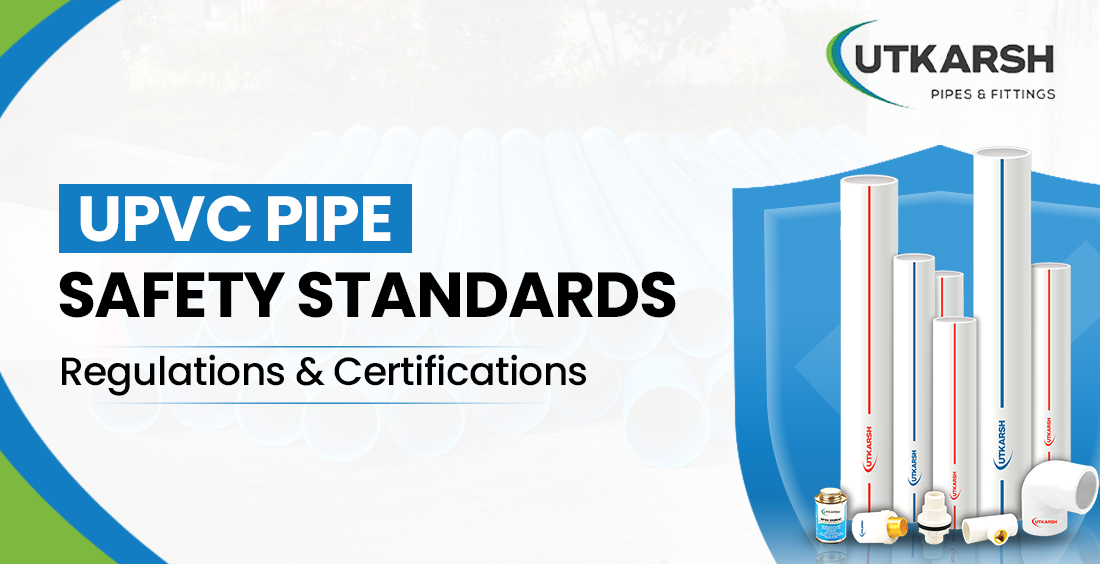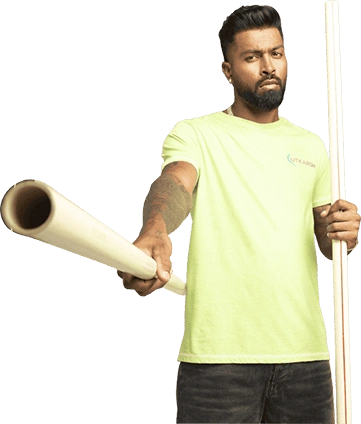uPVC Pipe Safety Standards - Regulations & Certifications

When choosing pipes for home or commercial use, one major question pops up: is uPVC pipe safe for drinking water? The short answer is yes—but only if it meets safety standards and certifications. Unplasticized polyvinyl chloride (uPVC) is widely used for water supply systems due to its non-toxic, lead-free composition and resistance to chemicals. However, not all uPVC pipes are made the same. The safety of these pipes depends on whether they follow national and international standards for potable water usage.
This blog focuses on the safety standards, regulations, and certifications you should check before choosing uPVC pipes for drinking water. Plus, we’ll share some useful tips to help you pick the right ones!
Understanding uPVC Pipe Safety Standards
Governments and regulatory bodies set strict guidelines to ensure uPVC pipes are non-toxic, durable, and suitable for drinking water. Here are the key standards you should look for:
1. Bureau of Indian Standards (BIS) Certification – IS 4985 & IS 15778
In India, the BIS certification ensures that uPVC pipes meet quality and safety standards. Two important certifications to check:
If you’re buying from an upvc pipe manufacturer, always ask if their products meet these standards.
2. NSF/ANSI 61 Certification (USA)
For pipes exported to or used in the United States, NSF/ANSI 61 certification is a must. This is a public consensus standard which establishes the basic criteria for evaluating whether the materials, components, and products used in uPVC pipes don’t leach harmful chemicals into drinking water. Products can be both tested and certified against the standard’s benchmarks.
3. ISO 4422: International Drinking Water Standard
The ISO 4422 certification confirms that uPVC pipes comply with global safety and performance standards. If a manufacturer exports their pipes globally, they should have this certification.
4. WRAS (UK) & AS/NZS 4020 (Australia/New Zealand)
Check the Manufacturer’s Certifications
Check the Manufacturer’s Certifications
Always buy from a trusted uPVC pipe manufacturer that meets national and international safety standards. Look for BIS, NSF, ISO, or WRAS markings on the pipes or packaging.
Opt for Lead-Free uPVC Pipes
Some manufacturers still use lead stabilizers, which can leach into drinking water over time. Go for pipes explicitly labeled "lead-free" to ensure safety.
Verify Material Quality
High-quality uPVC pipes should be:
Look for UV-Stabilized Pipes for Outdoor Use
If your plumbing system involves outdoor installations, choose UV-stabilized uPVC pipes to prevent sun damage. This ensures the pipes last longer without affecting water quality.
Get more details on: The Lifespan of uPVC Pipes: Tips for Long-Lasting Performance
Quick Comparison: uPVC vs. CPVC – Which is Better for Drinking Water?
| Feature | uPVC | CPVC |
|---|---|---|
| Temperature Tolerance | Best for cold water | Can handle hot water |
| Chemical Resistance | High | Very high |
| Safety Certifications | BIS, NSF, ISO 4422 | BIS, NSF, ASTM |
| Lead-Free Option | Yes | Yes |
A Trusted Name in uPVC Pipe Manufacturing – Utkarsh Pipes & Fittings
When choosing an upvc pipe fittings manufacturer , quality and safety matter the most. That’s why Utkarsh Pipes & Fittings has been a top player in India’s uPVC industry for decades.
If you’re looking for reliable, high-quality uPVC pipes, Utkarsh Pipes and Fittings is a name you can trust.
The Bottom Line: Ensure Safe Drinking Water with uPVC Pipes
So, is uPVC pipe safe for drinking water? Absolutely—as long as you choose the right one! Before buying, always:
Investing in high-quality uPVC pipes is essential for ensuring safe, clean, and long-lasting water supply systems. Choose wisely, and don’t compromise on safety!











